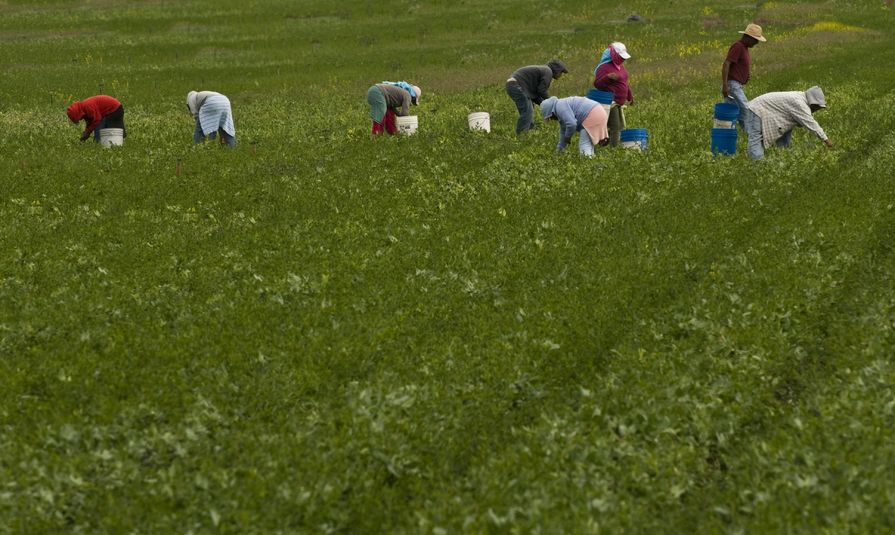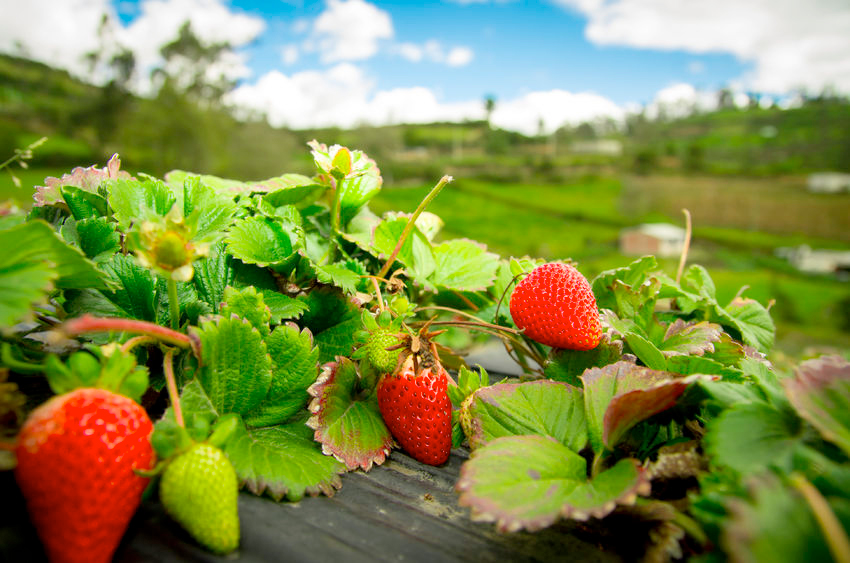
As Prime Minister Theresa May announced at her Conservative Party conference that the UK would begin formal Brexit negotiations, the farming industry has told the government it would struggle to survive without the seasonal flow of labour from the continent.
The Country Land and Business Association (CLA) is just one of the organisations that said the uncertainty for migrant workers may affect investment and job creation.
CLA President Ross Murray said workers from the EU and beyond play a "crucial role" in the rural economy.
"In agriculture alone more than 30,000 permanent workers and an estimated 67,000 seasonal workers overseas help keep our shops and market stalls stocked with UK produce," he said.
"Farms and other rural businesses need to know that after Brexit there will still be a flexible, skilled and secure workforce so they can plan for the future, invest in their businesses and secure or create jobs.
The Royal Association of British Dairy Farmers' (RABDF) 2014 independent farmer survey concluded that migrant workers were making a significant contribution to the dairy sector with one third of producers having employed foreign labour with the majority agreeing they had been a very successful option.

Angus Armstrong, chief executive of Produce Investments, a potato cultivation business said it was one of his biggest concerns.
"These are great people who work hard and some of them are moving into middle management and have been with us many years," Mr Armstrong told the Telegraph.
"We as a sector cannot turn our back on availability of labour.
"We would expect the Government to go back to a similar type of scheme should free movement of labour be curtailed after Brexit.
"It would be impossible to plug the shortage with local workers. The sector would struggle without labour from abroad."
Short term risk
The Agriculture and Horticulture Development Board (AHDB) in a publication said the potential reduction in migrant labour 'may catalyse structural change'.
It analysed the reasons why the UK agricultural industry has increasingly drawn on EU migrant labour and what effect any future restrictions on the free movement of people may have.
Paid labour represents a significant proportion of the industry’s total cost of production at about 14 per cent of total financial inputs or £2.5 billion in 2015.
But agriculture, forestry and fishing is the lowest performing UK sector in terms of job output per hour and major European counterparts outstrip the UK on productivity growth in agriculture.
In light of this, the report argues that risks to availability of overseas labour could be mitigated by an increase in productivity through innovation and skills development.
David Swales, AHDB Head of Strategic Insight, who co-authored the report, said: "If there are restrictions in the availability of labour, the costs of employing staff are likely to rise, meaning investment in more capital-intensive production systems such as automation may become a more attractive option for growers and producers."
There would be a risk in the short term, however, that businesses could be exposed by labour shortages and become less competitive in the global marketplace, according to the report.
In addition, some agricultural and horticultural sectors do not lend themselves to automation.
"Much greater substitution of capital for labour may be a consequence of a reduced supply of labour.
"But in the current climate of uncertainty, businesses may need significant signals from Government to help stimulate them to invest the capital required to offset any loss of affordable labour," added Mr Swales.
"We could see both the current structure of the industry and the nature of UK agricultural production change significantly as a result."
